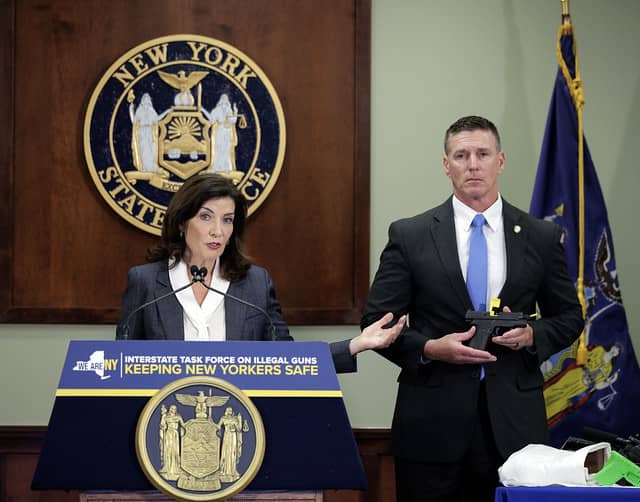New York recently lost a major Second Amendment case. This involves the state's new gun law. The law was seen as a reaction to the New York State Rifle and Pistol Association v. Bruen case. The law made it hard for gun owners. It said carrying a gun on private property was banned. This was unless the owner said it was okay. Many saw this as a problem. It confused gun owners and property owners alike.

The Firearms Policy Coalition (FPC) and others sued New York. They wanted to prove the law unconstitutional. A preliminary injunction was granted in 2022. This stopped the law for a time. The Second Circuit Court affirmed this injunction. Recently, a summary judgment favored FPC and the plaintiffs. The court found the law was against the Second Amendment. The judgment used a strong Bruen analysis. This means it checked the law against the Second Amendment text.
The case showed how New York's law did not fit with historical gun regulation. The court looked at whether the law would have been accepted in 1791. They found no support for such a law. This decision is a win for gun rights supporters. It also shows Bruen is working as it should.
Some say New York might have wanted this outcome. They believed the state knew they would lose. The aim might have been to cause legal battles and drain resources. This tactic didn't work fully because they lost early in court. The FPC's funds were affected but the gun law faced a fast legal defeat. This result sends a message to other states about creating similar laws.
The decision will likely go back to the Second Circuit. Appeals can be long and complex. But experts think the Second Circuit will uphold the decision. They do not expect the case to reach the Supreme Court. This could mean a final decision in about a year or more.
This case matters because it answers new questions about gun laws. It also sets a precedent for how courts should handle such laws. The case shows that while some laws might seem to support safety, they can still fail against constitutional tests. This decision may guide how states craft future gun regulations.
- HR38 Bill Introduced to Standardize Concealed Carry Nationwide in the US - January 12, 2025
- Oregon Challenges Court’s Rejection of 10-Round Magazine Ban Law - January 11, 2025
- Illinois Assault Weapon Ban Legal Battle Inches Toward Supreme Court - January 4, 2025




